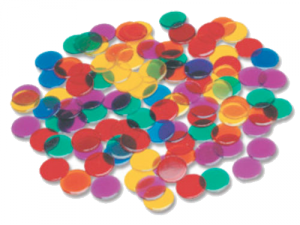What's in a game?
The ink’s still wet, but we’ve just signed the contract on our next inklebook project. I’m not quite ready to announce it yet (though there have been plenty of clues on Twitter over the last few weeks) but it’s an interactive novel, built on the same core technology as Frankenstein.

The big difference is that this time, what we’re making is a game, and not a book. We’ve talked it over and we’re sure. But unfortunately, we still don’t know exactly what that distinction means.
Things to do, people to see...
Whatever Frankenstein was - interactive fiction, collaborative adaptation, or just a plain old book - it wasn’t a game. There weren’t any goals, and the reader couldn’t employ strategies. Choices were made on the basis of how you felt, and not what they might do. And the design made it difficult - not impossible, but fairly hard - to go back and compare one path to another. It was a lean-back experience: a damn fine read.
This new project is different. There are goals, and places to explore, and challenges to face and overcome. There are different ways of tackling the same scenarios, each with their own costs and benefits. There are even some resources to manage. There are some explicit fails, and definite victories. It’s also episodic - a series of encounters leading onwards along a winding, dangerous path.
But wait? Frankenstein had all of those things… The only difference being that the resources it tracks - which are things like the character’s integrity, or the monster’s sense of despair - were never shown explicitly, only implied through the text.
For this new project - for this game - that stuff will be shown. It’ll be visible, traceable and threatening. You’ll know, for sure, the consequences of your actions. So is that what makes a game a game?
Sweet and sour reading
I suppose it certainly makes it less like a book. In a book, the content is all - but here, the text will be flavoured by the extra information provided by the user-interface. If you head out into a wasteland, feeling strong and vigorous with plenty of food, it could be a good respite from fighting - but enter the same wasteland weak, and with not enough food, and every step will be potentially deadly. The resources - the numbers - add context to the words. They add spice.
(Of course the text itself will be varied and flavoured too - that’s what the ink format is good for.)
But the core experience is still a great story - an epic journey, with fiendish challenges and edgy encounters and terrible odds. And it’s a story backed up by strong writing, clear characters, and a rich and weird world.
Still - does that mean it necessarily a game? Games tend to run on simple loops, and this project doesn’t have any of those. It still has mechanics - including a clever new combat mechanic that we’re simply dying (and dying and dying) to show the world. And there are resources to collect and deploy. And as for that “series of interesting decisions” thing of Sid Meier’s - yeah, we’ve got that covered.
A better metaphor
But both book and game are metaphors when it comes to talking about an app. They’re okay metaphors - they cover part of what the thing is. But there’s another metaphor I want to pull out, and it’s the one that makes me think this thing is really going to be great.
Because once you peel away the layers - the text, the world, the numbers - at its heart, this is a project about journeying. It’s about exploration. First and foremost, this project thing is a map.
Now, if you’ll excuse us - we have an interface to design.